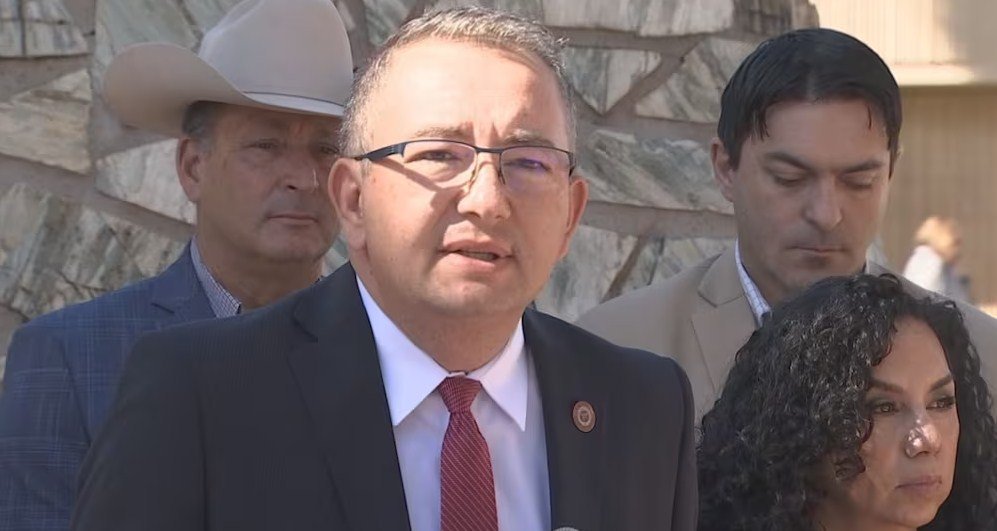Arizona Republicans have proposed a ballot measure that would impose harsh penalties on businesses that employ undocumented workers, sparking criticism from immigrant rights advocates and business groups.
The proposal
The proposal, sponsored by Rep. Bret Roberts, R-Maricopa, would require the Arizona Secretary of State to randomly audit businesses every year and verify the legal status of their employees. Businesses that are found to have hired undocumented workers would face a fine of $10,000 per employee, and could lose their licenses if they repeat the offense.
The proposal would also require employers to use the federal E-Verify system, which checks the eligibility of workers to work in the U.S., and to report any suspected violations to the state. Additionally, the proposal would prohibit local governments from adopting any policies that limit or restrict the enforcement of federal immigration laws.
Roberts said his proposal is aimed at protecting American workers and taxpayers from the negative impacts of illegal immigration. He said he wants to give voters a chance to decide on the issue in the November 2024 election.
“We have a problem with illegal immigration in this state and in this country, and we need to do something about it,” Roberts said. “We need to make sure that our businesses are following the law and not taking advantage of cheap labor.”

The opposition
The proposal has drawn strong opposition from immigrant rights advocates, who argue that it would harm the state’s economy, create a climate of fear and discrimination, and violate the rights of workers and employers.
“These are draconian measures that would hurt Arizona’s workers, businesses, and communities,” said Petra Falcon, executive director of Promise Arizona, a group that advocates for immigrant rights and civic engagement. “They would create a hostile environment for immigrants and their families, who contribute to our state’s culture, diversity, and prosperity.”
Falcon said the proposal would also undermine the progress that has been made in improving the relationship between law enforcement and immigrant communities, and in promoting a more humane and comprehensive approach to immigration reform.
“We need solutions that address the root causes of migration, that protect the rights and dignity of all people, and that create a pathway to citizenship for the millions of undocumented immigrants who are already here and are part of our society,” Falcon said.
The proposal has also faced opposition from business groups, who warn that it would hurt the state’s competitiveness, create unnecessary burdens and costs for employers, and disrupt the labor market.
“Arizona businesses already comply with federal and state laws regarding the hiring of workers, and they do not need additional regulations that would interfere with their operations and growth,” said Glenn Hamer, president and CEO of the Arizona Chamber of Commerce and Industry. “This proposal would harm our state’s economy, especially in sectors that rely on a diverse and skilled workforce, such as agriculture, construction, hospitality, and health care.”
Hamer said the proposal would also contradict the spirit of the Arizona Competitiveness Package, a set of tax cuts and incentives that was passed by the state legislature in 2011 to attract and retain businesses and jobs in the state.
“We need to continue to foster a business-friendly environment that welcomes investment and innovation, not one that drives away employers and workers with punitive and counterproductive measures,” Hamer said.
The outlook
The proposal faces a long and uncertain road to the ballot. It would need to pass both chambers of the state legislature with a three-fourths majority, which is unlikely given the narrow Republican margins and the expected opposition from Democrats and some moderate Republicans. Alternatively, it could be placed on the ballot by a citizen initiative, which would require collecting more than 237,000 valid signatures from registered voters by July 2024.
The proposal would also likely face legal challenges, as similar measures have been struck down by courts in other states. In 2007, Arizona passed the Legal Arizona Workers Act, which required employers to use E-Verify and authorized the suspension or revocation of licenses for businesses that hired undocumented workers. The law was challenged by the U.S. Chamber of Commerce and other groups, who argued that it was preempted by federal law and violated the due process rights of employers. The law was upheld by the U.S. Supreme Court in 2011, but only by a 5-3 vote, with one justice recused.
The proposal would also have to overcome the public opinion, which has shifted in favor of a more compassionate and pragmatic approach to immigration in recent years. According to a poll conducted by OH Predictive Insights in January 2024, 62% of Arizona voters support a pathway to citizenship for undocumented immigrants who meet certain criteria, while only 27% oppose it. The poll also found that 55% of Arizona voters oppose building a wall along the U.S.-Mexico border, while 39% support it.
The proposal comes at a time when Arizona is experiencing a surge in migration at its southern border, as well as a rise in COVID-19 cases and deaths among migrants and border communities. The Biden administration has faced criticism from both sides of the political spectrum for its handling of the situation, as it struggles to balance humanitarian concerns with security and public health measures.

Comments